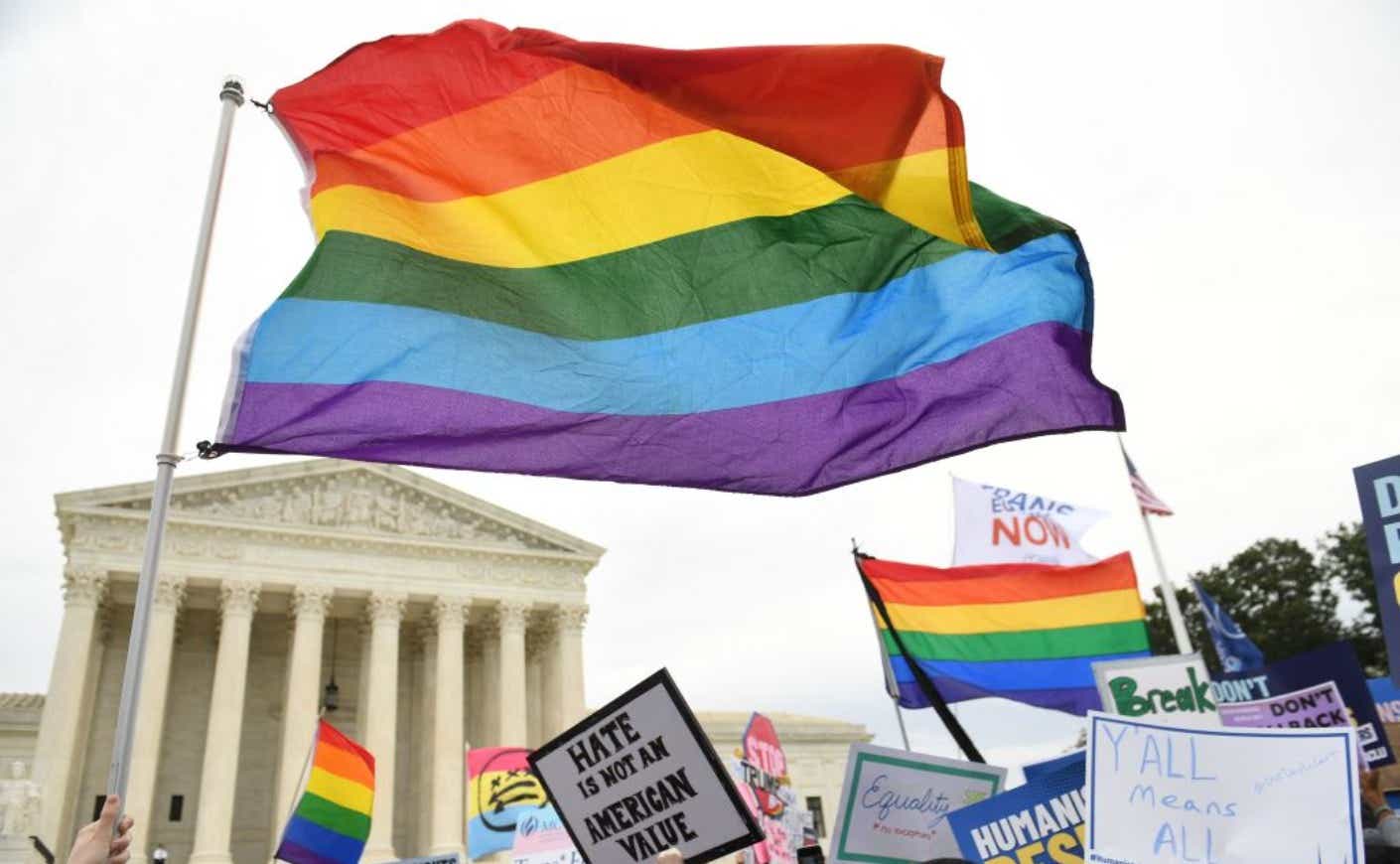It looks like another tough year ahead for American youth who identify as lesbian, gay, bisexual, transgender or questioning. Even though we’re just a few months into 2022, the Trevor Project is already tracking more than 150 anti-LGBTQ bills across the country.
In a op-ed for USA Today, the nonprofit’s CEO and executive director Amit Paley said the majority of these bills target transgender kids’ ability to play sports, access to gender-affirming medical care, and the use bathrooms that align with their gender identity. There’s even recently passed legislation in Florida that limits how schools and talk about gender and sexual orientation.
This year follows what’s considered one of worst years for LGBTQ rights in recent history. In fact, at least 18 bill targeting lesbian, gay, bisexual, and transgender people were enacted into law in 2021 alone, according to the Human Rights Campaign.
Meanwhile, advocates worry about the mental toll this is having on LGBTQ youth given that they are already vulnerable (research has long found that their risk for suicide is far greater than their straight peers).
What are some anti-LGBTQ bills to keep an eye on?
South Dakota Governor Kristi Noem signed the first anti-transgender bill of 2022 into law earlier this month. Senate Bill 46 officially bans trans women and girls from playing on school sports teams that align with their gender identity.
Similar laws have already gone into effect in other parts of the country. Starting this past January in Texas, transgender student athletes are required to play on sports teams based on the sex listed on their birth certificate.
These bills come amid increasing anti-LGBTQ rhetoric. Just last week, Texas Gov. Greg Abbott issued a directive calling on Texans to report the parents of transgender minors to state authorities if it appears the minors are receiving gender-affirming medical care, and failure to do so could result in criminal penalties.
Abbott’s latest letter follows an opinion released Monday by Texas Attorney General Ken Paxton, which likened allowing minors to receive transition care like hormone therapy to child abuse. But these moves are already facing pushback from advocates, who argue that it doesn’t hold legal ground. “There’s no court in Texas or the entire country that has ever found that gender-affirming care can constitute child abuse,” Adri Pèrez, who a policy and advocacy strategist at the ACLU of Texas, told NBC.
Meanwhile, Republican state lawmakers in Florida just passed a House bill that has been dubbed by its critics as the “Don’t Say Gay” bill, which bans any instruction about sexuality or gender between kindergarten and third grade. A similar measure’s also under consideration in the state Senate, though it’s unclear whether Republican Gov. Ron DeSantis would sign the bill if it made it to his desk.
What are parents of LGBTQ youth saying?
Amber Briggle, a Texas mom of a 14-year-old transgender son, says the escalating legislative debates around trans rights in her home state has become “emotionally traumatizing” for both her and her family.
“I’ve been seeing a therapist for years so I don’t cry in front of my kids over things that they shouldn’t have to worry about,” Briggle told NPR.
What makes it even more personal for Briggle is that she invited Paxton into her home for dinner in 2016 to discuss transgender, but she worries that the attempt to create a better understanding was futile. “For him to call us the child abusers is such a betrayal,” she told ABC-Dallas affiliate WFAA.
But Briggle’s family isn’t the only one struggling. Between 2020 and 2021, the number of LGBTQ youth in Texas seeking crisis support saw a 150% increase, according to the Trevor Project.
What’s the White House doing about it?
President Biden has been vocal about his criticism of these anti-LGBTQ measures.
“I want every member of the LGBTQI+ community — especially the kids who will be impacted by this hateful bill — to know that you are loved and accepted just as you are,” Biden tweeted earlier this month about Florida’s “Don’t Say Gay” bill. “I have your back, and my Administration will continue to fight for the protections and safety you deserve.”
Rachel Levine, assistant secretary for health and the first openly transgender Senate-confirmed federal official, has also said that that the Department of Health and Human Services “stands with transgender youth and their medical providers.”
Still, all eyes are remain on the Equality Act, which would expand the Civil Rights Act of 1964 to include protections against being being discriminated on the basis of sex, sexual orientation and gender identity across the country. Though the bill passed has passed in the House, it has died in the Senate and its fate remains unclear.









